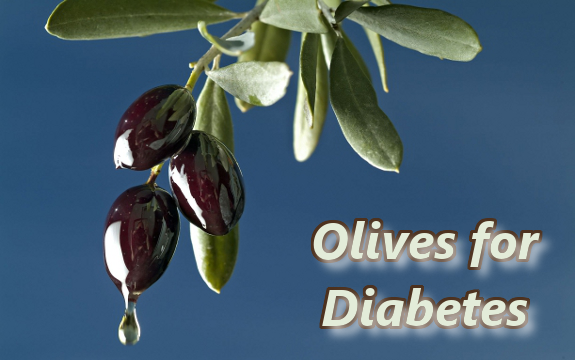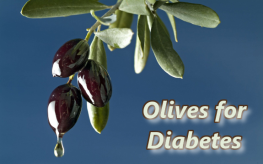Study Finds Olive Leaf Extract Useful in Diabetes Management

 Researchers with the University of Auckland, New Zealand have taken folk medicine to the lab to test the effectiveness of olive leaf extract in the treatment of diabetes. They found supplementation with the natural substance to improve insulin sensitivity and even increase pancreatic beta cell secretion, marking it as a potential treatment option for diabetics.
Researchers with the University of Auckland, New Zealand have taken folk medicine to the lab to test the effectiveness of olive leaf extract in the treatment of diabetes. They found supplementation with the natural substance to improve insulin sensitivity and even increase pancreatic beta cell secretion, marking it as a potential treatment option for diabetics.
Diabetes affects close to 26 million people in the United States, according to the American Diabetes Association. Many of these people are content to take their injections and stave off the symptoms that occur when their blood sugar levels get too high or too low. For others, however, significant lifestyle changes are able to further assist in the reduction and even reversal of the disease’s symptoms.
Published in the online journal PLOS One, the randomized, double-blind, placebo-controlled study looked at 46 overweight men, divided into two groups. One group received olive leaf extract for a period of 12 weeks, and the other received a placebo.
On average, the olive leaf extract was able to reduce insulin resistance by 15% and increase the production of beta cells (β-cells), which in turn produce insulin, by 28%.
“Supplementation with olive leaf polyphenols for 12 weeks significantly improved insulin sensitivity and pancreatic β-cell secretory capacity in overweight middle-aged men at risk of developing the metabolic syndrome.”
Read: 4 Herbs for Diabetes Management
Because these men were not diabetic and merely overweight, the true effects of olive leaf supplementation on diabetics is yet unproven. However, researchers know that comparing the effects on a non-diabetic population usually results in an even more dramatic impact on diabetics.
“Hence, compared to these drugs that only improve insulin secretion, olive leaf extract improves both insulin sensitivity and pancreatic β-cell secretory capacity. Remarkably, the observed effects of olive leaf extract supplementation in our study population is comparable to common diabetic therapeutics (particularly metformin)…”
In addition, another study published last year from Israeli medical researchers found olive leaf extract to help type 2 diabetics in managing their blood sugar levels.
Olive leaves, like other natural food sources, have been used to manage diabetes for years by people of the Mediterranean and around the world. This research, then, is likely no surprise to them.

That’s good nieuws. It will depend on the quality of the olive trees too. Check Portugal out: they have just found out that certain olive trees in Alentejo are 2450 years old: and yes, they’re making salad with their “Azeite” and “azeitonas”. They are very rare trees, which is why the spanish were stealing them from the folks desperate for food on the plate, after the destruction of Portuguese agriculture effected by the EU in the last 15 years or so.
Amazing to eat nice salad tomatoes sprinkled with portuguese sea salt, oregano and 2450 years old olive oil, don’t you think? 🙂
This is another remedy that is found in the Bible
Look for 20-25% oleuropein. Olive lead extract is twice as strong as green tea extract and 400% more powerful than Vitamin C. More antioxidant power than grape seed extract, cranberry, Noni, Acai, Mangosteen and Goji juices.